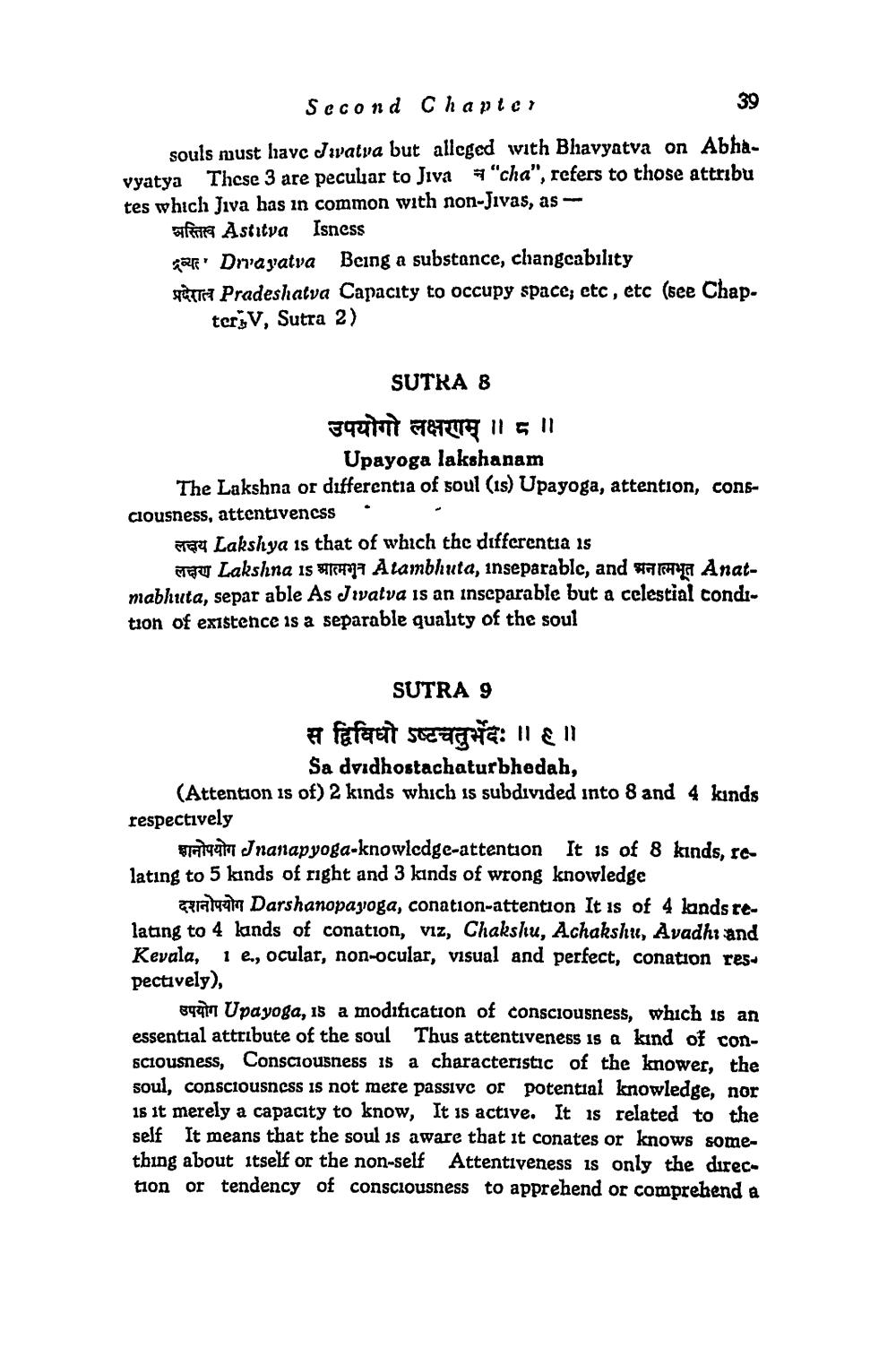________________
Second Chapter
39
souls must have Jwatva but alleged with Bhavyatva on Abhavyatya These 3 are peculiar to Jiva "cha", refers to those attribu tes which Jiva has in common with non-Jivas, as -
fie Astitva Isness Gap' Drayatva Being a substance, changcability srebra Pradeshalva Capacity to occupy space; etc, etc (see Chap.
ters, Sutra 2)
SUTRA 8 उपयोगो लक्षणम् ॥८॥
Upayoga lakshanam The Lakshna or differentia of soul (18) Upayoga, attention, consciousness, attentiveness . -
tay Lakshya is that of which the differentia as
90 Lakshna is 1497 Alambhuta, inseparable, and RYA Anatmabhuta, separ able As Juvatva is an inseparable but a celestial condition of existence is a separable quality of the soul
SUTRA 9 स द्विविधो ऽष्टचतुर्भेदः ॥ ६॥
Sa dvidhostachaturbhedah, (Attention is of) 2 kinds which is subdivided into 8 and 4 kinds respectively
14 Jnanapyoga-knowledge-attention It is of 8 kinds, relating to 5 kinds of right and 3 kinds of wrong knowledge
gralam Darshanopayoga, conation-attention It is of 4 kinds relaung to 4 lands of conation, viz, Chakshu, Achakshu, Avadhr and Kevala, i e., ocular, non-ocular, visual and perfect, conation respectively),
89979 Upayoga, is a modification of consciousness, which is an essential attribute of the soul Thus attentiveness is a kind of consciousness, Consciousness 15 a characteristic of the knower, the soul, consciousness is not mere passive or potential knowledge, nor 1s it merely a capacity to know, It is active. It is related to the self It means that the soul is aware that it conates or knows something about itself or the non-self Attentiveness is only the direction or tendency of consciousness to apprehend or comprehend a




